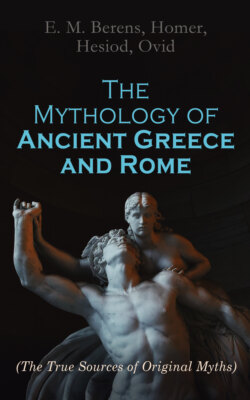Читать книгу The Mythology of Ancient Greece and Rome - Homer - Страница 113
На сайте Литреса книга снята с продажи.
EXPLANATION.
ОглавлениеIf the maxim of Horace, ‘Nec Deus intersit, nisi dignus vindice nodus,’ had been a little more frequently observed by the ancient poets, their Deities would not have been so often placed in a degrading or disgusting light before posterity. There cannot be a better illustration of the truth of this than the present Fable, where Ovid represents the chaste and prudent Diana as revenging herself in a cruel and barbarous manner for the indiscretion, or rather misfortune, of an innocent young man.
Cicero mentions several Goddesses of the name of Diana. The first was the daughter of Jupiter and Proserpine; the second of Jupiter and Latona; and the third of Upis and Glauce. Strabo mentions another Diana, named Britomartis, the daughter of Eubalus. The worship, however, of Diana as the Goddess of the Moon, was, most probably, derived from Egypt, with the Isis of whom she is perhaps identical. The adventure narrated in this Fable is most probably to be attributed to Diana Britomartis, as Strabo tells us, that she was particularly fond of the chase. Pausanias, in his Attica, tells the story in much the same terms, but he adds, that on seeing Diana bathing, the novelty of the sight excited Actæon’s curiosity, and prompted him to approach nearer. To explain this fable, some authors suggest, that Actæon’s dogs becoming mad, devoured him; while others suppose, that having ruined himself by the expense of supporting a large pack of hounds, and a hunting establishment, it was reported that he had been devoured by his dogs. Diodorus Siculus, and Euripides, tell us, that Actæon showed contempt to Diana, and was about to eat of the sacrifice that had been offered to her; and of course, in such a case, punishment at the hands of the Goddess would be deemed a just retribution. Apollodorus says, that Actæon was brought up by Chiron, and that he was put to death on Mount Cithæron, for having seen Diana bathing; though, according to one ancient authority, he was punished for having made improper overtures to Semele. Apollodorus also says, that his dogs died of grief, on the loss of their master, and he has preserved some of their names.
